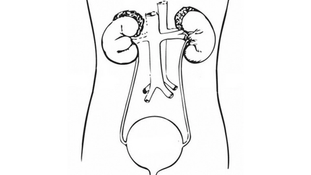The Targeted Pulse: An In-Depth Overview on the Power of ADCs, Highlights from ASCO, and More
Delving into the power of ADCs and intriguing data presented at the 2024 ASCO Annual Meeting, including benefits observed with nivolumab-cabozantinib in advanced RCC and the durable responses seen in endometrial cancer with envafolimab-lenvatinib. We also cover data on JNJ-6420 for metastatic CRPC, and the improvements seen with enfortumab vedotin plus pembrolizumab in urothelial cancer.
ADC Series: The Promise of ADCs Activated Across Cancer Types
In this 3-part series, Targeted OncologyTM explores the various data demonstrating how antibody-drug conjugates (ADCs) are improving the oncolytic field across cancer types. In the third installment featured here, various ADCs are explored, such as belantamab mafodotin (Blenrep), datopotamab deruxtecan (Dato-DXd; DS-1062a), and more, providing an in-depth look into their marked achievements and continued promise.
“The field of ADCs in breast cancer is an exciting area. We are excited to see more about Dato-DXd. If Dato-DXd gains approval, there will be a lot of discussion about sequencing of therapies, because you can certainly imagine there will be patients who are candidates for multiple ADCs. More to come and more discussion to be had in this space of sequencing,” Tanya Gupta, MD, said regarding the area of ADCs in breast cancer treatment. Gupta is a medical oncologist in the Stanford University Department of Medicine, Division of Medical Oncology.

First line Nivolumab/Cabozantinib Extends Treatment-Free Survival in Advanced RCC
When compared with sunitinib (Sutent), patients with advanced renal cell carcinoma (RCC) receiving the combination of nivolumab (Opdivo) plus cabozantinib (Cabometyx) experienced lengthened treatment-free survival (TFS) in the first line setting. Study investigators from the phase 3 CheckMate 9ER trial (NCT03141177) presented the data at the 2024 ASCO Annual Meeting.
“There are multiple immunotherapy-based combination treatments with similar efficacies approved for first-line treatment of advanced RCC. Therefore, it’s important to characterize patient survival time after treatment initiation,” Charlene Mantia, MD, a medical oncologist at Dana-Farber Cancer Institute and instructor in medicine at Harvard Medical School in Boston, Massachusetts, said during the presentation. “Over the 4-year period since first-line protocol therapy initiation, [patients treated with] nivolumab plus cabozantinib achieved a 1.5-times longer mean TFS vs sunitinib.”

Endometrial Cancer Reaps Advantage With Envafolimab Plus Lenvatinib
Subcutaneous envafolimab (KN035) plus oral lenvatinib (Lenvima) elicited durable overall response rates in patients with advanced endometrial cancer who after prior lines of therapy were not microsatellite instability-high (MSI) or mismatch repair deficient (dMMR). Data come from a phase 2, open-label, multicenter trial (NCT05112991), which was presented at the 2024 ASCO Annual Meeting.
Investigators stated that envafolimab plus lenvatinib “showed robust durable antitumor activity” while also demonstrating a manageable safety profile. The combination serves as an effective treatment option for those with previously treated advanced non-MSI-H/non-dMMR endometrial cancer–a population with a high unmet need, according to investigators.

JNJ-6420 Delivers Quick and Lasting Benefits in Metastatic CRPC
Findings from a first-in-human study (NCT04644770) showed that JNJ-69086420 (JNJ-6420) elicited deep and lasting responses in patients with metastatic castration-resistant prostate cancer (CRPC). Benefits were observed after only 1 or 2 doses of the agent which was also associated with manageable adverse events.
“JNJ-69086420 is an alpha emitting radioligand therapy that is the first to target hK2. It elicits deep and durable biochemical responses in metastatic CRPC. [Interstitial lung disease] and thrombocytopenia were dose-limiting, but these are mitigated using the adaptive dosing schedule and dose cap,” Michael J. Morris, MD, Division of Solid Tumor Oncology, Memorial Sloan Kettering Cancer Center, said during his presentation of the data at the ASCO Annual Meeting.
Enfortumab Vedotin With Pembro Greatly Improves PFS and OS in Urothelial Cancer
Enfortumab vedotin-ejfv (Padcev) combined with pembrolizumab (Keytruda) significantly improved progression-free survival and overall survival in locally advanced or metastatic urothelial cancer. Findings are from the phase 3 EV-302 trial (NCT04223856), where investigators compared the agent with traditional platinum-based chemotherapy, while also maintaining patients’ quality-of-life (QOL), pain levels, and daily functioning.
“We know that patients with locally advanced and metastatic urothelial cancer have a poor prognosis, with an estimated 5-year survival of less than 8% globally, and they have a high symptom and pain burden which impacts their QOL and functioning,” Shilpa Gupta, MD, noted during the presentation at the 2024 American Society for Clinical Oncology Annual Meeting. “Here, we report the PRO data from the EV-302 trial, including impacts on patient's quality of life, functioning, and disease symptoms.” Gupta is director of Genitourinary Medical Oncology at Taussig Cancer Institute and coleader of the Genitourinary Oncology Program at Cleveland Clinic in Cleveland, Ohio.
Thank you for joining us for this week’s Targeted Pulse. Look out for more recaps to come.










